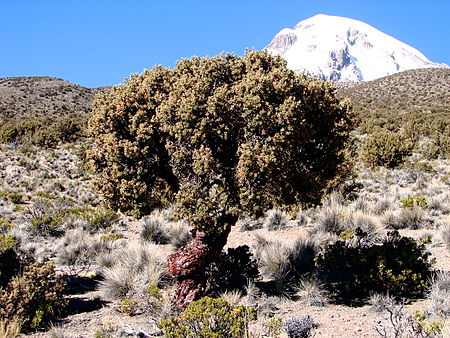The much talked about United Nations Climate Change Conference 2014 begins next week in Lima. In anticipation of this important 12-day event, our friends from Amazonas Explorer, a member of One Percent for the Planet, will be working with local communities in the Sacred Valley on a reforestation project that aims to plant 50,000 Queuña trees in one single day. Projects such as this one are nothing new to the team at Amazonas Explorer. Over the last eight years they have been collaborating with the Peruvian non-profit ECOAN (The Association of Andean Ecosystems) to plant nearly 250,000 native trees in the Lares watershed area of the Andes.CEO Paul Cripps says their goal is to plant a remarkable one million trees by 2020.
On November 29th, the 50,000 trees will be planted in Yanacocha, an hour from the village of Patacancha in the Ollantaytambo district of Cusco’s Sacred Valley. Amazonas Explorer has funded the planting of the first 20,000 trees. In order to plant 30,000 more, they raised money through donations; each tree costs only three soles, or one US dollar, to plant. 500 Quechua-speaking locals from the Huilloc, Rumira Sodormayo and Patacancha villages will help to plant the trees. Everyone that helps with the project, from children to the elderly, will be treated to a communal dinner, in addition to receiving a day’s salary for their hard work.
Forests used to be abundant in the Andes. Now, as a result of increasing deforestation, Queuñas and other similar species have almost disappeared. Native species have also been sidelined by imported trees that grow much more rapidly, most notably the Eucalyptus which has become commonplace in the Sacred Valley. The importance of restoring native forests to the area cannot be overstated. Queuñas grow in high altitudes and have a lifespan of about 100 years and in addition to absorbing carbon dioxide and producing oxygen, the trees store water, help prevent landslides, and provide firewood and construction material to the nearby communities. The burning of fossil fuels causes more carbon dioxide to be released into the atmosphere and in turn cause the Earth’s temperature to rise–commonly known as global warming. The future of the communities in the Peruvian Andes depend on protecting the land they live on and this tree planting initiative is a great way to educate the community and help them be proactive in acting against climate change and taking care of the environment for future generations.
As part of Aracari’s commitment to sustainable travel, we have donated to the Queuña Raymi tree planting project. We feel it is important to form long-lasting connections within the communities where we offer travel experiences and we encourage our guests to visit and take part through activities, donations or purchasing hand-made souvenirs that support the local economy. You can read more about our approach to ethical travel here.

